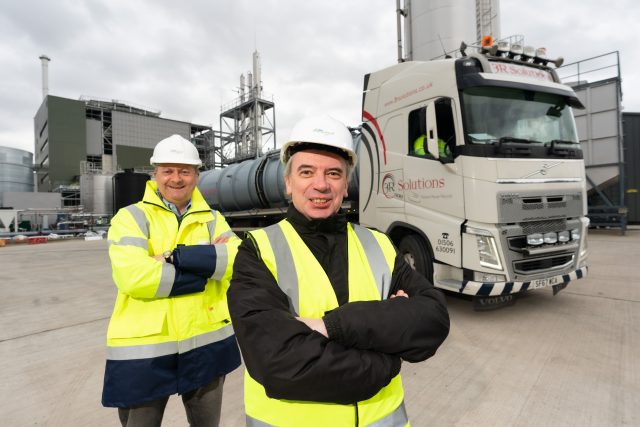This website uses cookies so that we can provide you with the best user experience possible. Cookie information is stored in your browser and performs functions such as recognising you when you return to our website and helping our team to understand which sections of the website you find most interesting and useful.
How Scotch whisky is playing a role in the creation of biofuel
Three Scottish companies, Ardnamurchan Distillery, Woodlands Renewables and Celtic Renewables, have joined forces to launch biofuel.

The catalyst for the cooperation by the three companies is serial Scottish investor Donald Houston of Ardnamurchan Estates who has substantial stakes in each of the businesses.
Houston said: ”Celtic Renewables needs a byproduct of whisky distilling called pot ale to assist in its testing process before starting full production of its biochemicals and biofuel. The pot ale is piped over the hill from the distillery to the neighbouring Woodland Renewables, a local business set up to repurpose the distillery’s by-products whilst adding value to the local economy. At the Woodland Renewables plant it is combined with draff (another distillery by-product) and turned into a nutritious animal feed used on the peninsula to feed local livestock. Woodland Renewables will transport part of their pot ale stock to Celtic Renewables.”
Scotland’s first bio refinery Celtic Renewables has already attracted £43million of investment and will be able to produce one million litres of sustainable biochemicals annually and five large-scale refineries are planned worldwide in the next five years.
The plant will use Celtic Renewables’ patented technology to convert 50,000 tonnes of biological material into renewable chemicals, sustainable biofuel, and other commercially and environmentally valuable commodities.
Houston explained: “Since their launch, sustainability has been a major component of Ardnamurchan Distillery’s overall strategy. Looking at new ways to improve their sustainability and circular economy, this innovative technology developed by Celtic Renewables fits perfectly with the distillery’s objective.“
Ardnamurchan Distillery managing director Alex Bruce said: “We designed The Ardnamurchan Distillery to be as sustainable as possible, and we continue to monitor and develop this as new technologies become available. Our energy all comes from local renewable sources (hydro and biomass) and our co-products, which are traditionally produced in all distilleries, are supplied to our neighbours, Woodland Renewables. From there they add value to the local circular economy by providing highly nutritional animal feed to livestock on Ardnamurchan, and we are incredibly excited that they also now deliver additional value to Celtic Renewables for conversion into sustainable chemicals and biofuels. This combination is a fantastic example of collaborative, high value and sustainable long-term investment in the Scottish economy.”
Celtic Renewables’ president and founder Professor Martin Tangney OBE added: “These tests we will be conducting with the whisky residue are the culmination of the lab work we started at Edinburgh Napier University in 2008 which led to the formation of our company in 2012. The substantial equity investment that enabled us to spinout Celtic Renewables came entirely from Donald Houston. Since then, we have gone on to raise over £43million in multiple rounds and Donald has contributed consistently along the way.”
Tangney highlighted: “Once in production we will have contracts for consistent supply of significant volumes of pot ale from the Scotch whisky industry. With the plant being commissioned we needed an ad hoc supply of pot ale on demand. Donald has stepped in to meet that need, to get us through to the full production phase.”
Houston pointed out that “the time taken to start commissioning the renewable plant and produce a saleable output is very similar to that of having a saleable whisky ready on the market” noting how “this long-term investment strategy rather than the usual short-term commonly offered to start-ups, is crucial to the health of our economy”.

